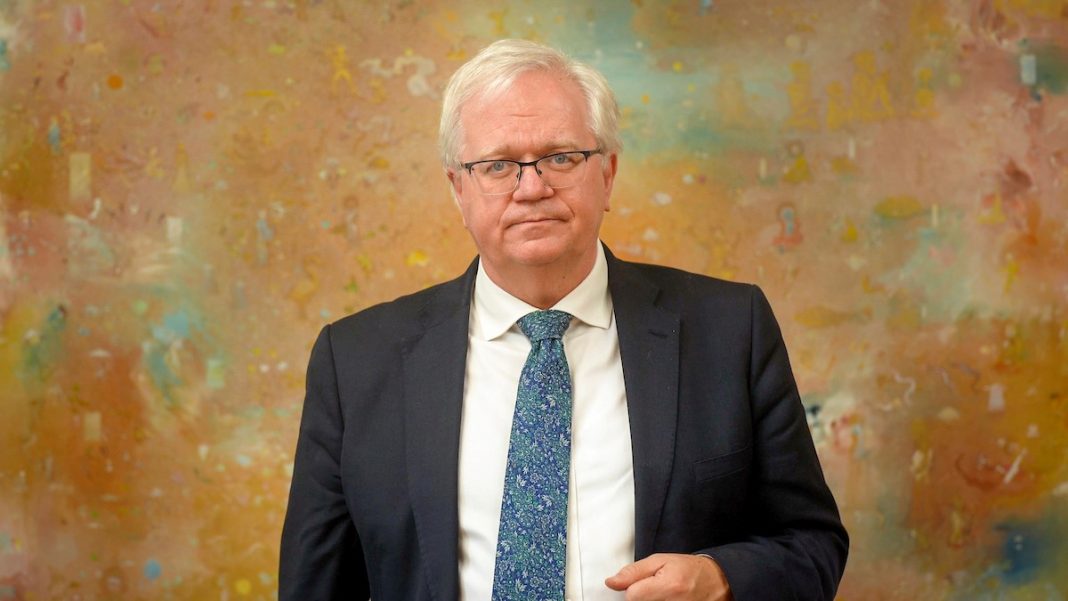Australian National University Vice-Chancellor Professor Brian Schmidt called for Australians to end “the scourge of racism”, following the publication last year of a survey that showed discrimination could cause psychological distress for Aboriginal and Torres Strait Islander adults.
Mayi Kuwayu: The National Study of Aboriginal & Torres Strait Islander Wellbeing investigated how Aboriginal and Torres Strait Islander culture links to health and wellbeing. It surveyed almost 10,000 Indigenous adults, and found that 30 per cent (149,000 people) experience high or very high levels of psychological distress, compared to 13 per cent of non-Indigenous adults.
The ANU researchers say almost half – 47 per cent – of this gap is caused by eight different types of interpersonal racial discrimination: people act like they are afraid of Aboriginal and Torres Strait Islanders; people act like they are not smart; they are treated with less respect; they receive worse service; they are followed around shops; they are called names; they are watched more closely than others at work or school; and police unfairly bother them.
65 per cent of Aboriginal and Torres Strait Islander adults have experienced one or more of those types of everyday discrimination. More than two-thirds of those who experienced these types of everyday discrimination thought it happened because they were Aboriginal and/or Torres Strait Islander.
Nationally, the ANU estimates that more than 200,000 Aboriginal and Torres Strait Islander adults experience everyday racial discrimination. It could have caused psychological distress for 27 per cent (41,000 people) of the 149,000 people who experience high levels of psychological distress.
“I don’t think people understand how much racism breaks our spirit,” one respondent, Jessica, said. “We have to armour up every day when we leave the house, and we go into spaces where we’re not safe. It’s tiring, and it’s mentally exhausting. And that has huge impacts on our wellbeing.”
Professor Schmidt, a Nobel laureate, said everyday Australians, as well as leaders across business and politics, “must step up” to do more to combat racism in Australia, and address the “major and tragic toll” it has on Aboriginal and Torres Strait Islander peoples.
“Racism is deeply troubling, and it is wrong,” Professor Schmidt said. “When we allow discrimination and racism to persist, it stops our collective growth as a society.
“ANU has done research that illuminates a painful truth.
“The Mayi Kawayu study led by ANU professor Ray Lovett [a social epidemiologist], has provided further insights into the relationship between racism and health.
“Key findings from the Mayi Kawayu study show that nearly half of the total burden of high to very high psychological distress reported amongst Aboriginal and Torres Strait Islander adults could be attributable to eight forms of everyday discrimination.
“These broadly relate to surveillance, persecution, disrespect, and aversion.
“This ground-breaking research proves that racism has negative consequences for health.
“We can no longer ignore this stark reality.
“That’s why ANU is making the call to end racism.
“ANU is committed to raising awareness and understanding of the ongoing settler-colonial history of our nation, its ongoing impacts, and how we can do better.
“We believe research, education, and action are fundamental to putting an end to racism.”
The ANU has set up an Ending Racism webpage, with a video Aboriginal and Torres Strait Islander people about the impacts of discrimination and their visions for world without racism, and a check-up tool so non-Indigenous people and organisations can reflect on their attitudes and actions, and access resources.
Professor Schmidt encouraged individuals and organisations to use the tools “to reflect on what more you could do to be ending racism”.
“And I want to go one step further and call out the leaders of other Australian organisations to do their part; your actions will make a difference.
“Let’s stand together, united against this killer – racism.
“Let’s challenge stereotypes, prejudices, and biases wherever we encounter them.
“Let’s strive for a world where health disparities based on race are unheard of and where all people are treated with respect and dignity at all times.
“Together we must make a real and lasting change.”



